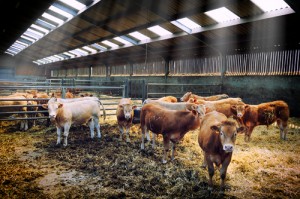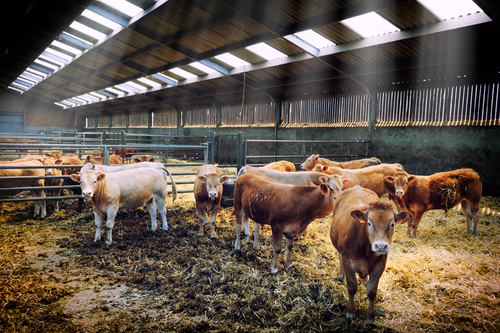 Growing up on a farm with livestock halves the risk of developing the most common inflammatory bowel diseases (IBD), ulcerative colitis and Crohn’s disease, according to new research led by Aarhus University in Denmark. The study, recently published in the European Journal of Epidemiology, compares people that grew up on farms with their urban counterparts and reveals that the environment is also an important feature regarding IBD.
Growing up on a farm with livestock halves the risk of developing the most common inflammatory bowel diseases (IBD), ulcerative colitis and Crohn’s disease, according to new research led by Aarhus University in Denmark. The study, recently published in the European Journal of Epidemiology, compares people that grew up on farms with their urban counterparts and reveals that the environment is also an important feature regarding IBD.
“It is extremely exciting that we can now see that not only allergic diseases, but also more classic inflammatory diseases appear to depend on the environment we are exposed to early in our lives,” said Vivi Schlünssen, the Associate Professor in Public Health at Aarhus University.
The group of people born after 1952 and who lived on livestock farms for the first five years of their lives analyzed in the study were much better protected against IBD than older people. Among the oldest the place were patients grew up made no difference. “This leads us to believe that there is a correlation between the rise in inflammatory bowel diseases and increasing urbanisation, given that more and more children are growing up in urban settings,” explained Signe Timm, PhD student at Aarhus University.
“We know that development of the immune system is finalized in the first years of our lives, and we suspect that environmental influences may have a crucial effect on this development. The place where you grow up may therefore influence your risk of developing an inflammatory bowel disease later in life,” he added.
Although the research conducted did not uncover the reasons for the differences between growing up in a modern city and a rural setting, the researchers formulated a theory based the environmental exposure. They believe that the body’s immune system may be dependent on the presence of a wide variety of microorganisms in order to develop in a healthy manner, as has been established in studies on allergies and asthma.
“We know that the difference in the microbial environment between city and country has increased over the past century, and that we are exposed to far fewer different bacteria in urban environments today than we were previously. This may in part explain our findings,” says researcher Signe Timm.
IBD, which affects about 50,000 in Denmark alone, include chronic diseases and tends to appear progressively earlier and in younger patients. The next step for the researchers is to assess if this discovery is also verified within the next generation. In order to determine this, Signe Timm is planning to recruit about 20,000 children to participate in a study and investigate if the effect of environmental influences can be inherited to the next generation as a result of a complex interplay between genes and the environment.

